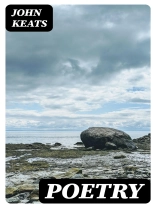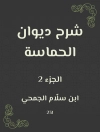John Keats’s ‘Poetry’ is a profound exploration of the interplay between beauty, nature, and human emotion. Anchored in the Romantic tradition, Keats employs rich imagery and sensuous language that transports readers to a world imbued with emotional depth and aesthetic power. His exploration of themes such as the transient nature of life, love, and the pursuit of artistic immortality is made manifest through lyrical verses and intricate symbolism, exemplifying the era’s preoccupation with the sublime and the ineffable. Through his unique diction and stylistic choices, Keats invites readers to revel in the beauty of language itself, positioning his work as a seminal contribution to 19th-century poetry. John Keats (1795-1821) was an English Romantic poet whose short life was marked by personal tragedy and an enduring passion for literature. His formative years were shaped by the loss of loved ones, financial struggles, and his own frail health, all of which profoundly influenced his poetic voice. Surrounded by the works of romantic contemporaries, Keats’s quest for beauty and truth in poetry led him to sublime expressions that resonate deeply with the human experience, as crystallized in this collection. ‘Poetry’ is an indispensable read for those who appreciate the intersection of art and emotion. Keats’s ability to capture the ephemeral quality of life through language makes this work essential not only for poetry enthusiasts but also for anyone seeking to understand the deeper connections between humanity and the natural world. This collection remains a timeless testament to the power of the human spirit.
Despre autor
John Keats (1795–1821) was an English Romantic poet whose work is renowned for its sensual imagery and profound musings on beauty, love, and death. Despite his tragically short life, Keats’ profound influence as a master of lyric poetry remains indisputable. After training as a surgeon, Keats decided to dedicate himself entirely to poetry. His most significant works emerged from an intensely creative period in his life, producing classics such as ‘Ode to a Nightingale’, ‘Ode on a Grecian Urn’, ‘Ode on Melancholy’, ‘To Autumn’, and the epic ‘Hyperion’. Keats’ poetry, characterised by its vivid imagery, emotional depth, and contemplation of the transitory nature of life, has become emblematic of the Romantic era. His work continues to inspire and is widely studied, exemplifying the utmost passion and talent which flourished and faded in the span of a few short years. His letters also provide significant insights into his poetic theory and aesthetics — often regarded as literary works in themselves. Keats’ literary style was once critiqued for its ‘excessive’ sensuality but is now celebrated for its rich textures and embodiment of Romanticism’s ideals. Despite his lack of widespread acclaim during his lifetime, Keats is today considered one of the great English poets, leaving behind a legacy that endures and enchants well into the modern age.












